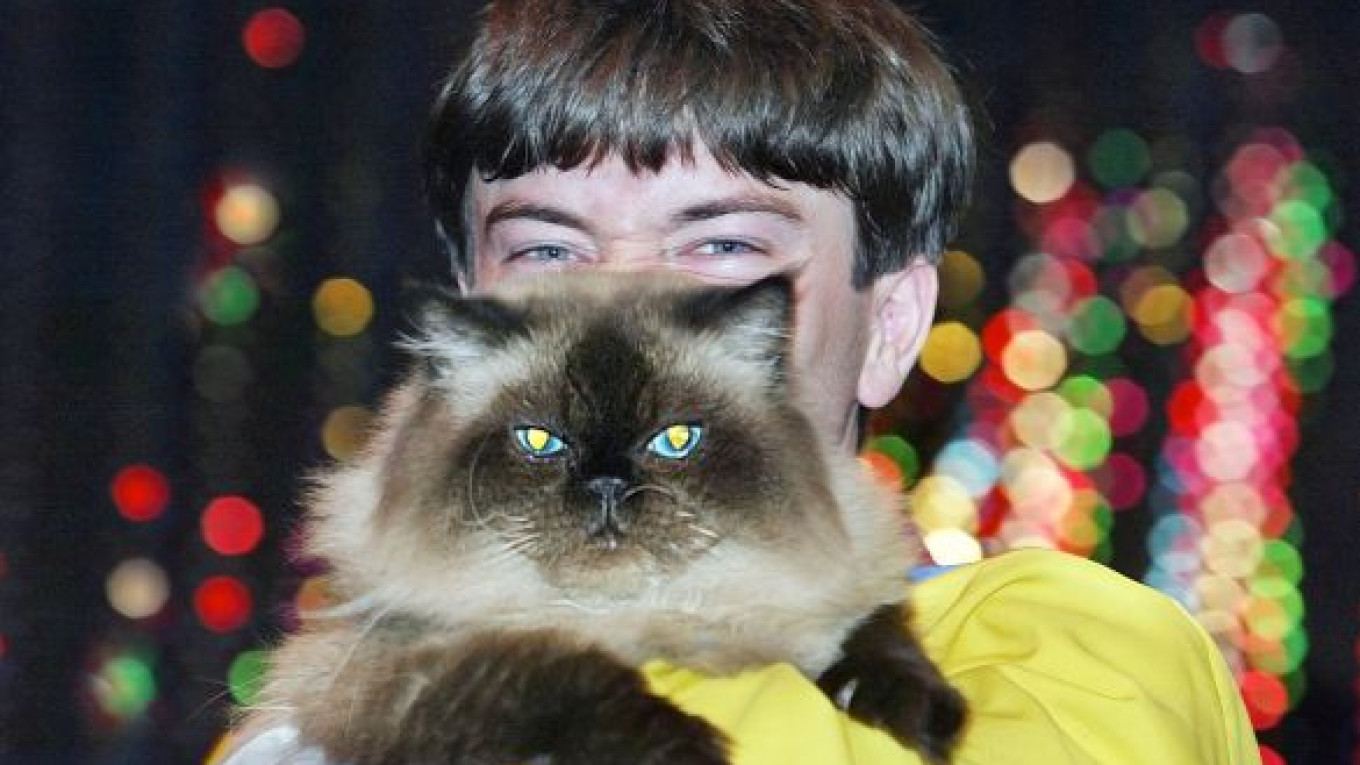Life in Russia is about to get a whole lot funnier.
Russia is seeing a growing influx of Western comics, bolstering the resurgence of stand-up in the country. The recent Moscow Irish Comedy festival at Krymsky Val, which featured Dylan Moran, Michael Legge, David O. Doherty and David McSavage will be followed by Eddie Izzard's upcoming first Russian performance in June.
In addition to these visits by foreign comics, the festival's organizers, Anton Borisov and Igor Meerson are now in the middle of recording an innovative stand-up comedy show for Russian television, through which they hope to encourage viewers from all corners of Russia to record their own material to send in.
"Next year will be the year of stand-up comedy in Russia," Meerson said. "We have a different culture, a different history of literature, but we do not have a history of stand-up. These are the early days."
Bringing a show here doesn't come without its challenges. There is a definite sense of this still being a test period. Most notably, English-speaking comics appear to have some concerns about not being able to connect with the Russian-speaking audience.
"We are just trying to find topics, ideas that are interesting for our audience," Meerson said. "In any sphere, if you are the first one, there will be mistakes."
Dylan Moran has a Russian lexicon of "18 words, to be precise." He seemed to use them all throughout his festival performance, with his pronunciation attempts being a source of comedy for some native spectators. He has also made a genuine effort to connect with Russian culture and passed some commentary on distinctions found between the types of Russian men.
However, the inability to speak the language made other performers apprehensive.
"What I do requires fluent English, and so I wasn't thrilled about the idea," said David McSavage, who performed on the second night of the festival. "I'm not used to performing in front of people who have English as a second language. It's almost disrespectful that I should expect them to speak this language. I wish I'd known some Russian."
McSavage fell back on some of his old material for the show. He has said it was a bit sexually explicit, which made him feel a little embarrassed.
"I don't normally do it, but it's applicable to every country. I felt like it was a bit below the audience, this material," he said.
But the audience members responded good-humoredly to outside perspectives on Russian residents. "What's your name?" Legge asked a heckler. "Ivan." "Of course it is," he replied, drawing a loud laugh.
"Sometimes generalizations are so over-exaggerated and silly, but there's a grain of truth in them," McSavage said. "I certainly like it when someone from another country comes to Ireland and notices things. I like to hear them."
Dylan Moran's performance last year in St. Petersburg, which was heralded as a first, ended on a slightly deflated note. However, Meerson said this was probably because, near the end of the show, the audience was a little tired of translating. The next such show took place in the fall in Moscow, and went much smoother.
Meerson and Borisov do not stand completely alone in their efforts to make Muscovites laugh.
Comedy Club Moscow is now one of the most popular entertainment venues in Russia and is often much more daring in its approach to humor than traditional Russian stage-comics, who tend to verge more closely on theatrical monologue. The setting up of Comedy Club was inspired by the Comedy Store in Los Angeles, and its humorous numbers have been broadcast on the Russian channel TNT since around 2005.
It is also impossible to disregard some individual comics who gained popularity by offering witty social commentary on post-Soviet life, such as Mikhail Zhvanetsky, Mikhail Zadornov and Yelena Stepanenko.
Meerson said he hoped the influence of "great, original performers from the West" would encourage younger generations to try their hand at stand-up comedy.
"Every country has its own humor, but Dylan Moran and Eddie Izzard are universal worldwide," Meerson said. "Russia also has it's own, something special."
So far there has only been the odd Russian-rooted English-speaking comedian who has slipped into the West, such as Yakov Smirnoff in the 1980s. But as the number of students holding open mic nights, performing at gig venues or even in smaller house-shows continues to grow, perhaps an ever-increasing number of Russian comics will start bringing their new shows westward too.
Meanwhile, the Moscow Irish Comedy festival organizers are setting their sights beyond Russia. The comics have previously performed in countries they consider Russian-speaking, such as Estonia, but would like to go even further afield.
"We want to produce some English material and try our humor," Meerson said. "We will find out whether it is local Russian, or whether it will be understood by foreigners."
Contact the author at [email protected]
Related articles:
A Message from The Moscow Times:
Dear readers,
We are facing unprecedented challenges. Russia's Prosecutor General's Office has designated The Moscow Times as an "undesirable" organization, criminalizing our work and putting our staff at risk of prosecution. This follows our earlier unjust labeling as a "foreign agent."
These actions are direct attempts to silence independent journalism in Russia. The authorities claim our work "discredits the decisions of the Russian leadership." We see things differently: we strive to provide accurate, unbiased reporting on Russia.
We, the journalists of The Moscow Times, refuse to be silenced. But to continue our work, we need your help.
Your support, no matter how small, makes a world of difference. If you can, please support us monthly starting from just $2. It's quick to set up, and every contribution makes a significant impact.
By supporting The Moscow Times, you're defending open, independent journalism in the face of repression. Thank you for standing with us.
Remind me later.


